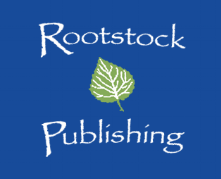FEATURE: Prominent A-bomb victim's memoir translated for global audience
By Miya Tanaka, KYODO NEWS, July 15, 2020
WASHINGTON - Months after the 1945 U.S. atomic bombing of the Japanese city of Nagasaki, a teenager whose back had been stripped of skin by the blast was filmed by an American soldier -- a scene that came to be one of the most widely recognized reminders of the horrors of the nuclear attack.
The boy, grimacing in pain, was Sumiteru Taniguchi. He survived, and eventually put himself in the forefront of Japan's antinuclear campaign, often baring the scars engraved in his flesh, until he died at the age of 88 in 2017.
Commemorating the 75th anniversary of the atomic bombing of Nagasaki on Aug. 9, which followed the one on Hiroshima three days earlier, Taniguchi's detailed account of his life will become available to an English-speaking audience through a book to hit shelves in the United States next month.
"The Atomic Bomb on My Back," to be put out by Rootstock Publishing, an imprint of Multicultural Media Inc., is a translation of a 2014 memoir by Taniguchi as told to local newspaper reporter Tomokuni Hisashi.
Japanese and U.S. peace activists spent a total of five years translating the text and finding a U.S. publisher, hoping that it would bring renewed attention to the inhumane consequences of the use of atomic bombs in the United States, where many believe the attacks on Japan were a justified means of ending World War II.
"We hope readers in the United States, particularly the younger generation, will relate to this personal life story of an ordinary 16-year-old boy working as a postman, who survived the atomic bombing," said Rieko Asato, who led the translation team and is a member of a Japanese antinuclear group.
Stephen McArthur, a co-founder of Rootstock based in the eastern U.S. state of Vermont, called it an "important" book as he believes the American people are still in the middle of "learning a lot about our history." …
…Read the Full Article Here.


